Why are some people weak after a heart stent, but others are as normal?
First of all, the mindset of the first important, after surgery, to strengthen the exercise, find a thing to do, distraction, optimism, the mood must be good.
For why some people are weak and some are as normal after a heart stent.
In terms of medical knowledge, I don't know anything about it, but can only scratch the surface of the fact that we really do have people like that around us.
A 53-year-old village chief, who was working in his village, was rushed to the city hospital when he suddenly had heart trouble.
After being examined by various medical devices, it was later found that there were blockages in the large blood vessels of the heart, and, in several places, stents needed to be installed for the safety of his heart.
At that time, the bracket was imported 50,000 yuan, domestic 20,000 yuan, this village chief, in the past, his own family to open a large repair shop, money is no problem.
His daughter-in-law and his son talked it over and had three imported braces put in for him, which cost nearly $20 or so.
After a few months of recuperation, this village headman went to work normally and managed some affairs in the village.
Later on, nothing affected, riding motorcycles down to inspect the land, and leading work on the mountains, all of which were a good hand.
He was on his own medication for over a year, and then he went off of it, and he felt very good.
This year he is nearly 70 years old, he always told us, or bracket is good, I live these years again, live a year I earn a year.
He said he was in a ward with him, stenting together, plus him four.
Of those three, one was gone after two years, and another lived seven years and was gone.
Another, now, is still maintained by daily medication and is still afraid to do strenuous exercise.
He was the one who had the best results and is still walking and jumping, retired and living a very good and happy life.
It varies from person to person for three general reasons:
First, the lesion itself is very severe, such as a patient with a heart attack, which itself requires a period of recovery from other traumas in the body besides the opening of the blood vessel (stent placement);
Second, surgery (perioperative period) related, stent implantation preparation - stent implantation - postoperative recovery (the entire so-called "perioperative period"), one or more links in the middle of the problem will be uncomfortable, such as stent is not placed properly, combined with low potassium, hypoglycemia, rehydration of too much fluid, and so on. There are also acute side effects of medications, such as bleeding caused by blood-activating drugs.
Third, post-operative conditions, chronic side effects of medications (e.g., statin leading to poor liver and kidney function), irrational lifestyles (late nights and anxiety), etc.
Why are some people weak after a heart stent while others feel almost nothing like normal?
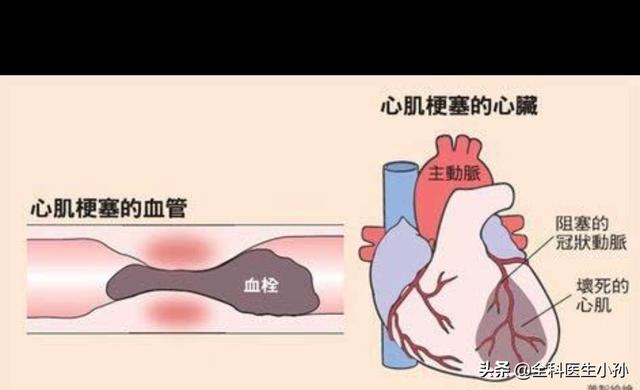
As a primary care physician and an acutePatients after stenting for myocardial infarction, and then there's another father in the family after coronary stenting for angina, and I'll talk to you about that.
Speaking for myself, since I was stented at the time for acute heart attack reasons, my feelings were of post-stent exhaustion.
The first two days of stenting were spent in a hospital bed, following doctor's orders and being careful about turning over, just in case there was an accident, ah.
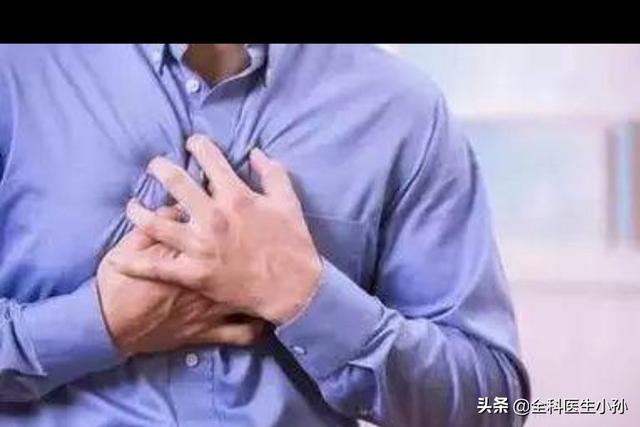
Two days later began to sit up from the bed, with weakness, and had to lie down and rest after sitting for a while. After two more days, I started to sit on the edge of the bed and occasionally stood up. At that time, I had to hold the edge of the bed, and I really didn't have much strength.
After about a week start to get out of bed holding the edge of the bed to walk, walk a few steps to rest, slowly increase the amount of exercise, slowly exercise physical strength.
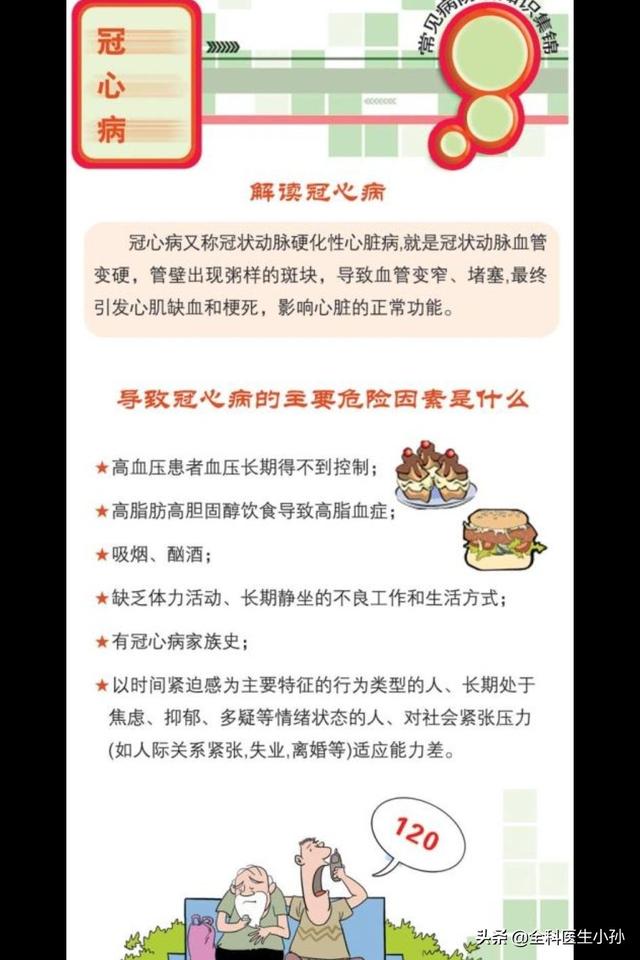
After two weeks in the hospital, when I came home and started to move around a little bit more, I got a little dizzy and weak, so I sat down and rested. It took a few months of recovery exercises to get over it.
Through my own personal experience, I believe that there are several reasons for the feeling of fatigue and tiredness that can occur after stenting for acute myocardial infarction:
1.The cause of the disease itself. Acute myocardial infarction causes partial myocardial necrosis, and stenting is also a traumatic experience for the body, and it takes time to recover, so there is a period of time when you experience fatigue.
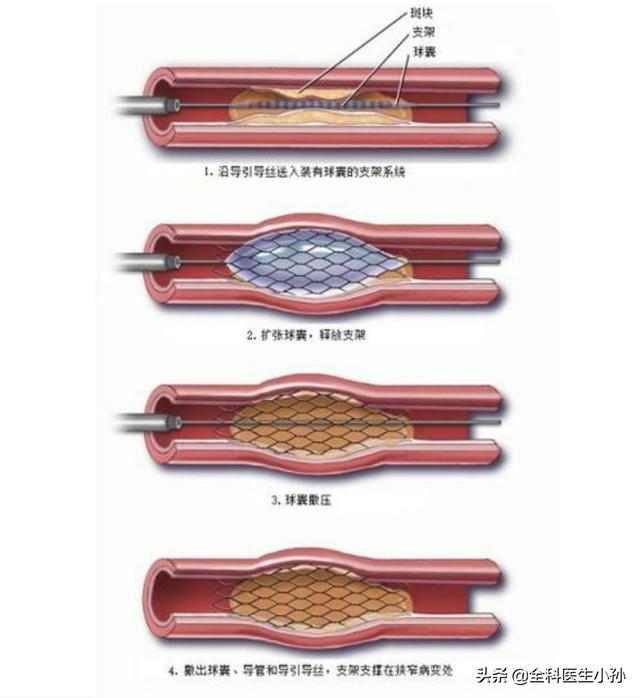
2.There is still some narrowing that has not been dealt with.At that time, the stented portion of the stent was 90% stenotic, and there was another spot that was less than 60%, although not to the extent of the stent, which may have contributed to the feeling of fatigue and malaise.
3.Psychological effects.I was only 30 years old age, is the golden age, out of this really scared half dead ah, do not dare to move, do not dare to eat and drink, what is in accordance with medical advice, sometimes fatigue is also related to psychological.
4.Drug Relationships.Postoperatively, he was treated with long-term enalapril maleate, betalactam for lowering blood pressure, heart rate, and preventing ventricular remodeling, and his blood pressure began to be maintained at about 90/60, with frequent panic attacks and fatigue.
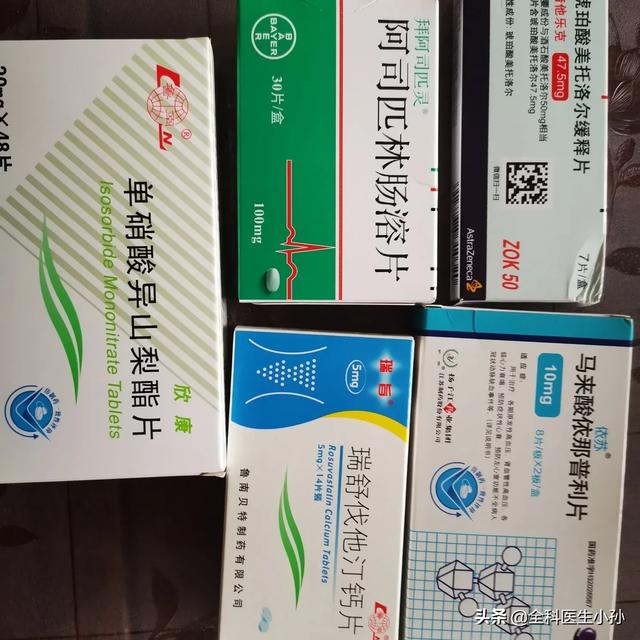
Again, my father, who is an angina sufferer, had a coronary angiogram that revealed a blood vessel blocked over 90, had a stent put in, and was discharged from the hospital two days after the procedure, and said himself that he didn't feel any fatigue. Likely has something to do with the lack of myocardial damage.
After stenting with or without this feeling of fatigue, weakness, panic, we must actively seek medical attention, do not take matters into your own hands, life gives a chance, we must make good use of it, do not reoccur this kind of shock!!

Weakness and often feeling tightness in the chest, 68-year-old Uncle Li always suffered from such discomfort after undergoing coronary stent surgery on his heart. At first he thought it was because the surgery was not done properly, but the doctor told him the surgery was successful. Then why did he still experience chest tightness, weakness and other discomforts after the surgery?
Heart Stent Surgery
As a result of smoking, drinking and other factors, the heart blood vessels will be damaged to varying degrees; and the effects of diabetes, hypertension, hyperlipidemia and other diseases will lead to atherosclerosis, lipids are deposited in the endothelium of the blood vessels through the wounds, forming plaques. Over time, plaque thickening will lead to narrowing and blockage of the blood vessel lumen, and even trigger blood clots. If the degree of stenosis exceeds 80%, it is necessary to rush to heart stent surgery.
Cardiac stenting involves placing a catheter in a narrowed blood vessel and then applying pressure outside the body to hold the catheter up, restoring blood flow and ensuring blood and oxygen supply to the heart muscle.
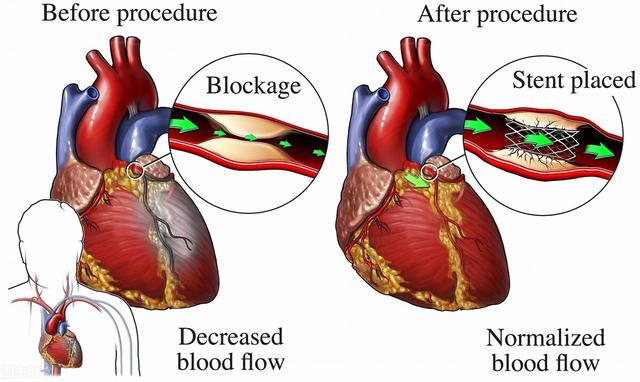
In many people's perception, surgery is already the last treatment used for more powerful or diseases, so why do patients still experience weakness, fatigue and other uncomfortable symptoms after stent surgery? The reasons are manifold.
After cardiac stenting, the patient is weak and lethargic
1. Heart attack leads to partial myocardial necrosis and impaired cardiac function in patients.From the time when the blood vessel is blocked and heart attack occurs to the time when the patient undergoes stenting surgery and the patient's blood vessel is unblocked, the time spent in between is directly related to the patient's status after the surgery. After a long period of time, the heart muscle becomes extensively necrotic due to the lack of timely supply of blood and oxygen. Even if the blood vessels are finally unblocked, the necrotic heart muscle will lead to the impairment of normal cardiac function and insufficient pumping of blood by the heart, which will lead to weakness and fatigue, and other manifestations of the body.
2. The blood vessels blocked by the heart attack are not completely unblocked.An important point to clarify is that heart attacks often block more than one or two, and cardiac stenting does not put a stent in each of all the blocked blood vessels. Heart stenting only selects a few of the more important blood vessels that are severely blocked and located close to the heart. This means that some of the narrowed blood vessels are not unblocked, and with the deposition of lipids in the blood vessels, there is a possibility that the narrowing will become severe or blocked. As a result, the patient's normal heart function is also affected to varying degrees.
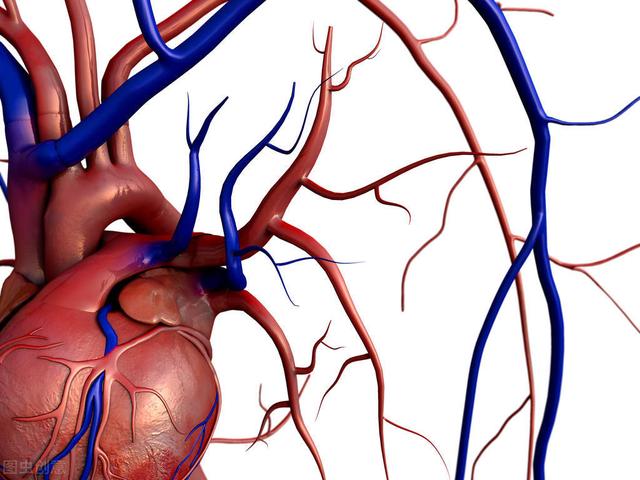
3. Prolonged bed rest and loss of physical strength after surgery.In biology, there is a term called "use it or lose it", which means that skills or organs that are often used will continue to improve and progress, while if they are not used often, they will lose certain functions or lead to atrophy of muscles and organs. After stent surgery, patients usually need to stay in bed for a longer period of time, and when they get out of bed again, they will show weakness and powerlessness, which can be achieved through active activities and gradual exercise.
4. Response to long-term medication after stenting.After stent surgery, patients need to take long-term oral related therapeutic drugs, such as the use of aspirin and clopidogrel to fight platelet aggregation, the use of Rosuvastatin or Atorvastatin to regulate blood lipids, the use of beta-blockers such as Beta-blocker to reduce heart rate and blood pressure and improve the myocardium, and the use of valsartan or Benadryl to improve myocardial remodeling. Among other things, it is normal to experience adverse effects such as fatigue, weakness, and muscle aches and pains when taking drugs such as statin and betalactam.

I am Pharmacist Wang, dedicated to helping you manage your body by explaining complex and difficult disease knowledge in plain words. Your praise is my greatest motivation! In addition, if your family members also have related troubles, please forward this article to them!
Heart stent, first of all, depends on what part of the stent is in, as long as it is not the anterior wall, the body will recover very quickly after the stent by taking medication as prescribed by the doctor, if it is the anterior wall, the recovery after the stent will be slower.
I'm not a doctor, but I have had personal experience, my old man is a heart stent, and is the front wall, myocardial necrosis, heart failure of the third level, before and after the transfer of five hospitals, a total of more than a month hospitalization time, after discharge, from the dietary habits, the emotional aspect, living and living as well as the appropriate exercise, coupled with medication, and now recovered very well, the heart attack stent in 2017, in 2019, you can go to work, so that the Heart stent is not terrible, as long as the heart is good, you can overcome the disease.
I have done bypass surgery before, it has been 19 years, the end of last year felt heart discomfort, in the province of Chinese medicine, hospitalized a few times, there is no solution, I went to Qilu Hospital hospitalization, installed a stent, a few days to return to the previous state! Now the activity is also normal.
This has to do with many factors and can never be summarized in a simple sentence!
People are different from each other, and diseases are different from each other. For example, for the same disease, can a young patient and an old patient have the same mental state? Another example is the same disease. Can the prognosis be the same for early treatment and late treatment?
Stent implantation surgery is naturally no exception. For some patients with less severe conditions, after stenting, the blood supply to the heart muscle recovers better, and the heart is not hurt too much, so naturally there won't be too much abnormality; whereas some patients with stenting have multiple blood vessels blocked before stenting, and the heart muscle is necrotic due to long term ischemia, and at this time, even though stenting is done to save their lives, many blood vessels have not been reopened, and there is still chest pain, chest tightness and other symptoms. There is still myocardial ischemia, so there will still be chest pain, chest tightness and other symptoms, and due to the large-scale necrosis of myocardial cells, it will also affect cardiac function, naturally, it can not be like a normal person.
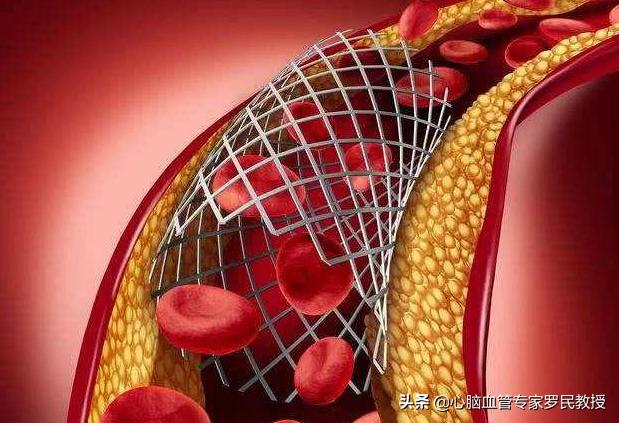
First, it needs to look at the patient's state of mind!
My teacher, Prof. Hu Daiyi, once put forward the "Double Heart Medicine", which emphasizes the influence of mood on the heart, not to mention the severity of the patient's existing condition, even a normal person, for years and years in the high-pressure, anxiety and other emotional distress, will affect the normalcy of the nerves, prompting spasm of the blood vessels, the myocardial blood supply is reduced.
Cardiac stent itself is a highly controversial term in recent years, due to the high price of stents, which has given rise to the clinical reality of stent abuse, the vast majority of patients began to blindly reject the stent, but do not know that stents have no therapeutic effect, but in the field of cardiac diseases have the status of a "divine pin", which can save patients' lives and bring them a new life. It can save the patient's life and bring a new life to the patient. This kind of misunderstanding and prejudice is not something that I alone can reverse, but based on this kind of speech, a lot of people begin to regret or fear their implanted stents, which is not based on any grounds, but will bring harm to themselves, affecting the nerve normality, aggravating the vascular blockage, and aggravating the ischemia of the myocardium.
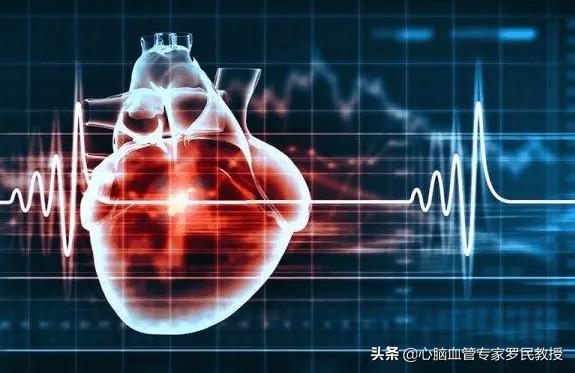
Then, it needs to depend on the patient's condition!
Stenting cannot reverse time. When patients are in the stenting phase, they are already in critical condition, they often have a long history of disease and severe myocardial ischemia, and the heart function of these patients is not too good, or even has been significantly impaired, which is clinically known as "heart failure".
Heart failure patients will not be cured just because they have stents, they are two different "diseases", there may be some connection, but it is by no means inevitable, the heart function of this kind of patients is greatly attenuated, and they can't "work" normally like normal people, which also affects the blood vessels of all major organs in the body, affecting the transportation of blood oxygen supply. This also affects the blood vessels of the major organs of the body, affecting the supply and transportation of blood and oxygen, which is a disgusting cycle, difficult to treat, with a mortality rate of about 50% within five years, although the frequent appearance of new drugs in recent years has led to an increase in the survival rate, but it still fluctuates by only 5%.
And heart failure fits the description of frailty even better. These sufferers often have chest tightness, shortness of breath, and limited activity, and this worsens as cardiac function continues to decrease. For example, patients with heart failure grades 3 and 4 will have chest tightness, shortness of breath, weakness, and fatigue even if they are not doing any activity and are just resting in bed.
Finally, a word to the wise: you are you, he is he, don't take anything for granted, and don't turn the other cheek!

I hope my answer helps you!
If there's anything you don't understand, comment and private message me!
Everyone is different and adapts differently to stents. When I had my stents done that year, the patient in front of me had three stents, and he was so comfortable after his stents that he was discharged the next day. I had one stent, and before I even got off the table, I felt very uncomfortable in my throat, and I was admitted to the CCU unit right after I got out of the operating room. I stayed in the CCU ward for half a month before I was discharged.
I put a stent six years ago, everything is normal, when the side effects of two years of medicine can not sleep in the middle of the night, now it is very good, the medicine is also reduced quite a lot, you have to drink more water, less intense exercise, keep a good state of mind, and the same as normal people. [teeth bared][teeth bared][teeth bared][teeth bared][teeth bared][teeth bared].
Apart from physical rehabilitation, psychological rehabilitation is also important and patients should have a counseling arrangement.
This question and answer are from the site users, does not represent the position of the site, such as infringement, please contact the administrator to delete.